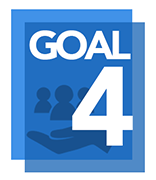All victims of modern slavery and human trafficking are entitled under international law to an effective remedy, including to compensation. Yet in reality access to an effective remedy is the exception, not the rule, for victims of trafficking and modern slavery. They often lack access to effective remedial mechanisms, and even where they do have such access these processes rarely lead to compensation, restoration or other forms of effective remedy. This remedy gap prolongs trauma and heightens risk of re-victimization. So providing remedy is also a prevention measure.
Financial sector entities are expected to provide effective remedy, or cooperate with legitimate remedial mechanisms, where they cause or contribute to modern slavery or human trafficking.
The first and perhaps best option for financial sector entities is to cooperate with courts and judicial remedies, through facilitating financial investigations, and asset freezes and confiscation. Financial investigations have an important role to play in revealing trafficking organizations, perpetrators, gatekeepers and victims. They can also help prosecutors demonstrate the profit motive and knowledge of traffickers, and financial transaction evidence can reduce the burden on victims by obviating the need for testimony and providing corroborating evidence. Financial investigations also open the door to broader charging and higher penalties, and have the potential to provide for restitution and compensation to victims, through asset confiscation.
Another option is cooperation with state-based non-judicial remedies, such as OECD National Contact Points (NCPs), or the mechanisms set up by multilateral development banks. The number of remedial cases brought to these forums is growing, and instructive jurisprudence and practice is emerging in all these areas.
A third option is to cooperate with non-state grievance mechanisms. Here, too, practice is rapidly evolving. But there is already significant guidance available on how to provide and support effective grievance mechanisms.
Where financial sector entities are linked to modern slavery or human trafficking harms, but do not cause or contribute to them, they may not be expected to provide remedy, but they may choose to enable it. Moreover, it is becoming clear that over time a business’s linkage to modern slavery risks can evolve into contribution to those risks – for example if failure to conduct expected due diligence facilitates a borrower’s causation of or contribution to modern slavery or human trafficking, changing the risk and responsibility picture for financial institutions.
Driving remedy to scale will require moving beyond a case-by-case approach, and thinking about how to create system-level remedial mechanisms.
Financial sector actors may have unique leverage to make that happen by, for example, pre-positioning remedial arrangements – such as worker compensation funds to protect against illegal recruitment fees or wage theft – within projects or investees they finance. The Abandoned Seafarers Compensation Scheme could provide a model for this.
Another solution might be to collaborate to ensure that survivors of modern slavery and human trafficking can access the financial system. Survivors often find that traffickers have hijacked their financial identity or banking products for money laundering or other criminal purposes, spoiling their creditworthiness and complicating financial reintegration. Working with major banks and survivor service organizations, the Commission has established a Financial Access Project running a Survivor Inclusion Initiative to achieve just this. The Initiative aims at re-integrating survivors into the formal financial system through provision of basic financial services and products. Launched in US, UK and Canada, coverage will later expand to other jurisdictions. A full list of participating entities can be found here. The Initiative provides a common approach for the safe extension of basic financial services to survivors, adapted to each jurisdiction in which the Initiative is active. Building on an approach pioneered by HSBC in the UK, the Liechtenstein Initiative has created a directory and workflow template for financial institutions, service providers, regulators, governmental actors and other key stakeholders to match identified survivors to basic financial services (e.g. chequing and savings accounts, debit and credit cards).


